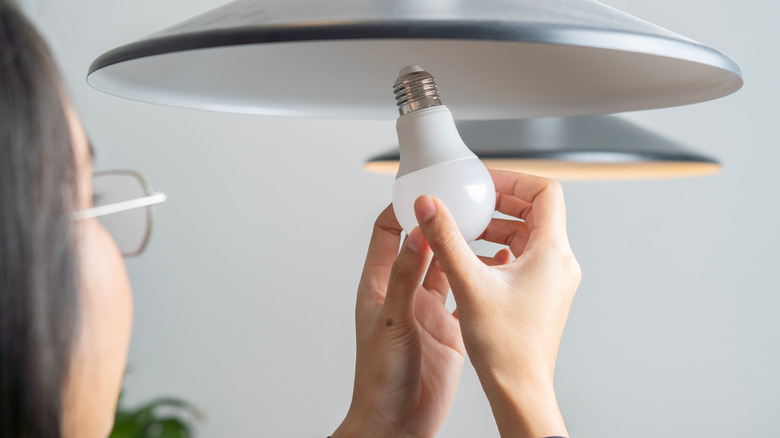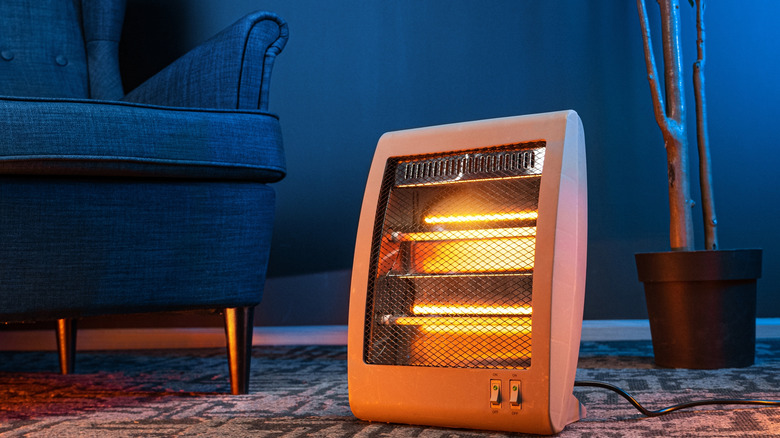The Worst Place For LED Lightbulbs That Makes Them Burn Out Way Faster
When adding new lighting to your home, LED lightbulbs are an environmentally conscious and overall better choice than incandescents. The more efficient lighting ensures that you save money on your energy costs, and that need for less energy in the bulbs also helps them to last longer. However, what if your LED lightbulbs are burning out more quickly than they should? You might be tempted to find clever ways to use LED light strips and brighten up your home in closets, drawers, or any smaller spots where it's dark. But believe it or not, one of the worst places for LED bulbs in your home is wherever there is higher levels of heat or little ventilation, because it makes your bulbs burn out way faster.
LED lighting is different than other types of light bulbs you may use, which is why it's natural to see people incorporating trendy LED light features in their homes. The primary reason is that they don't give off heat, making them less of a fire hazard than traditional bulbs. But this means the parts of the LED bulb weren't made with tolerating high levels of heat in mind.
Why heat makes LED lights burn out (and ways you can prevent it)
The delicate, light-producing pieces that are within your LED bulbs are the components that are more susceptible to heat. These pieces are soldered together, and the heat makes the solder weaken, causing the parts to break more easily. So, your LED light bulbs won't last very long in hotter areas of the house, such as next to your kitchen stove or near heat vents.
If you want to install LEDs throughout your home, there are some preventative measures you should take when planning to install them in a more heated area. First, you might consider getting a heat sink for your LED lights that can help to absorb some of the heat and keep it from reaching your bulbs. You may also try to lessen the heat and increase the air flow by incorporating some fans to help cool down the space and ensuring that there's some good ventilation for the heat to escape so it isn't too concentrated. Finally, if you use a space heater in a smaller room, consider moving it away from any light sources, or consider just turning the lights off so that the bulbs are cooled and won't get too hot when the heat rises.

